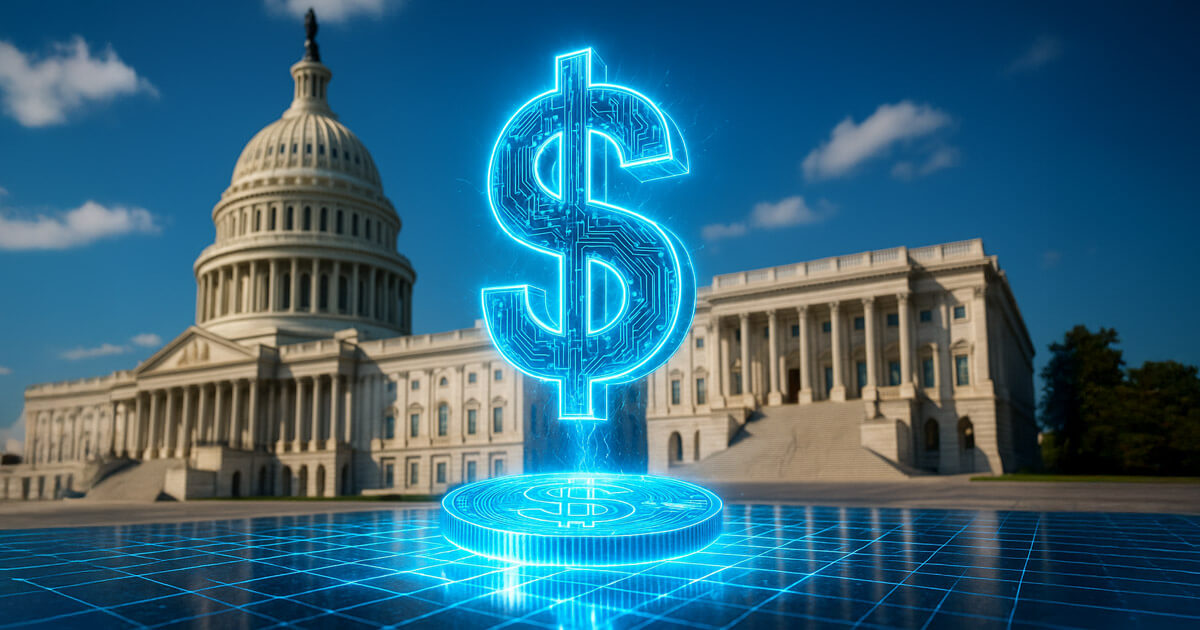
Senate Aims to Fast-Track GENIUS Stablecoin Legislation Before May Ends
Senate Republicans have intensified their efforts to advance legislation concerning federal stablecoins, aiming to bring the GENIUS stablecoin bill to a vote before the upcoming Memorial Day break.
This week, Senate Majority Leader John Thune initiated a push to fast-track the consideration of the Guiding and Establishing National Innovation for U.S. Stablecoins (GENIUS) Act, setting the stage for a potential vote within the chamber as early as May 20.
This legislative effort escalates the ongoing discussion in Washington regarding stablecoins, highlighting the bill as a significant marker for digital asset policy in the United States.
The GENIUS Act, which received bipartisan approval from the Senate Banking Committee in March with a vote of 18-6, aims to establish a regulatory framework for payment stablecoins. It would require issuers to maintain a 1:1 backing with cash or Treasury securities and conduct monthly attestations.
Additionally, the legislation would place large stablecoin issuers under the supervision of the Federal Reserve while allowing for state-level regulation for smaller entities.
### Support for the bill
Proponents of the bill, including Senators Bill Hagerty, Cynthia Lummis, and Tim Scott, contend that it is essential for maintaining the dollar’s dominance and clarifying regulations surrounding cryptocurrency activities.
“I am eager to see the GENIUS Act passed quickly to foster digital asset innovation in the U.S., protect consumers, and ensure that foreign companies adhere to the same standards,” said Hagerty.
The legislation is seen as a necessary response to the swift expansion of stablecoins, which now boast a total market capitalization exceeding $241 billion, with major players such as Tether and Circle dominating the landscape.
Advocates assert that establishing legal clarity will help maintain the stability of dollar-linked tokens in the global crypto market, while also bolstering demand for U.S. debt through required reserve holdings.
However, opposition has swiftly emerged from both progressive Democrats and key banking organizations.
### Opposition to the bill
Senator Elizabeth Warren has emerged as a prominent critic, voicing concerns that the proposed framework may empower large tech companies and other conglomerates to issue their own stablecoins.
More than 20 community banking groups have echoed these worries in a recent letter, cautioning that the bill could displace traditional deposits and introduce new risks to the financial system.
The road ahead remains unclear. Despite controlling the Senate, Republicans will need at least seven Democratic votes to meet the 60-vote threshold necessary to advance the legislation.
Although the bill gained bipartisan support in committee, Democratic opinions are divided. Senators like Kirsten Gillibrand and Mark Warner, who have previously shown a willingness to engage with stablecoin legislation, may play crucial roles moving forward.
### Next steps for the GENIUS Stablecoin Act
Even if the GENIUS Act successfully passes through the Senate, variations with the House’s version could delay final negotiations into the summer months. The House Financial Services Committee has put forward a parallel bill with stricter disclosure mandates, making reconciliation between the two chambers potentially challenging.
Federal Reserve officials have shown cautious support for some degree of stablecoin oversight, with Governor Christopher Waller expressing that both banks and non-banks should be permitted to issue regulated stable tokens.
As Senate leaders gear up for an important vote later this month, the ongoing debate mirrors larger issues surrounding the future of digital currency.
Republicans are promoting the bill as essential for safeguarding U.S. monetary authority and fulfilling President Donald Trump’s advocacy for “keeping digital-dollar innovation domestic.” Conversely, opponents persistently highlight the risks associated with the privatization of digital currencies.
The Senate’s forthcoming decision on the GENIUS stablecoin bill will represent a critical juncture in the regulation of stablecoins, challenging lawmakers to reconcile partisan and industry differences in order to establish a cohesive national framework.



















Post Comment